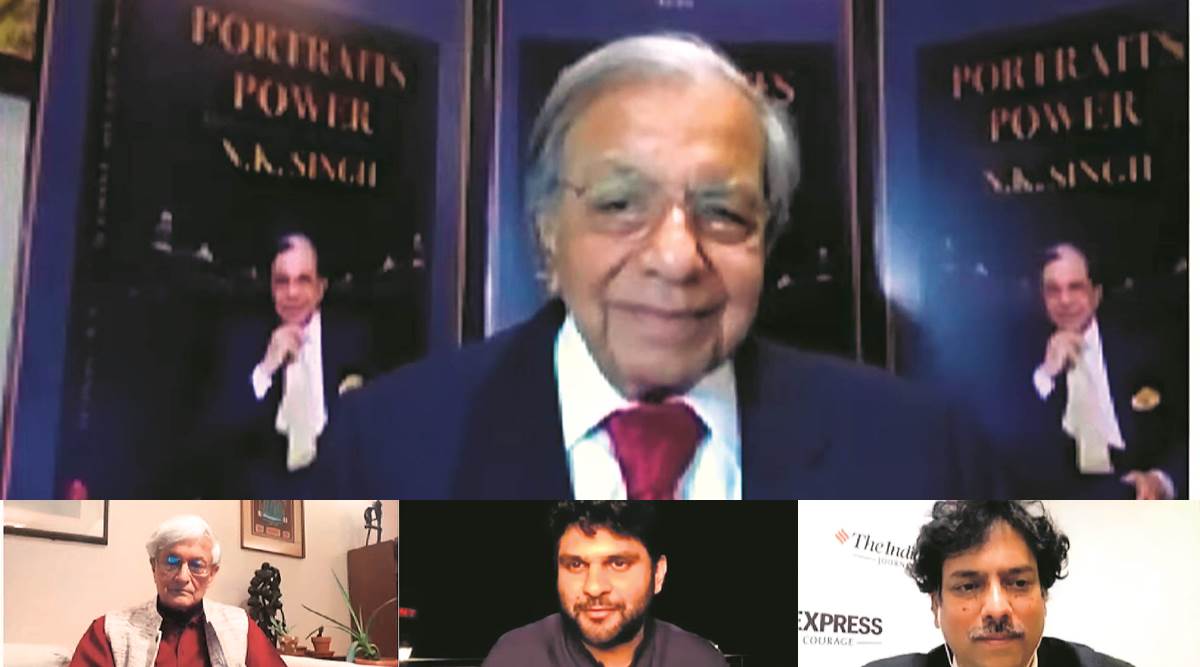 NK Singh was in conversation with Shankar Acharya, economist and former Chief Economic Adviser (left); Anant Goenka, Executive Director, The Indian Express Group (centre); and P Vaidyanathan Iyer, Executive Editor (National Affairs), The Indian Express
NK Singh was in conversation with Shankar Acharya, economist and former Chief Economic Adviser (left); Anant Goenka, Executive Director, The Indian Express Group (centre); and P Vaidyanathan Iyer, Executive Editor (National Affairs), The Indian ExpressP Vaidyanathan Iyer: In your book, you talk about the Westminster model of parliamentary democracy being de facto replaced by the presidential model…
NK Singh: The Westminster model is based on one central principle — the Prime Minister is the first among equals. The moment this is altered, you’ve altered the gene particles of the model. After all, votes are garnered and elections won on the basis of who is going to lead the country; what matters to the voter is who is more likely to deliver on the aspirations. If not de jure, then de facto, it is this unsettled equilibrium, in which the Cabinet Office increasingly takes the traditional role, namely the Cabinet Secretary is the secretary of the council of ministers. The Secretary to the PM is to carry out the orders and initiatives of the PM. Chief Ministers have also adopted a similar model. So, it is the changing voter psychology all over the world, which has been the most important guiding factor in moving away from traditional models of governance.
The pandemic has demonstrated one more thing, namely, the very important role of a central unifying factor in being able to work out social security systems. You may have to, in fact, write a new social contract.
Anant Goenka: In your experience, the autonomy given to bureaucrats and the strength of democratic institutions — in which of these models do democratic institutions thrive?
NK Singh: We need to opt for a hybrid between the two. The permanent bureaucracy is the most important institution, particularly in a federal polity like ours. It lends permanence to any volatilities and uncertainties in the governance rubric , fearlessly being able to put across their point of view, leaving the policy options to the political masters. In this framework, of course, there are other questions — does meritocracy always pay off in the changing dynamics, besides other factors that come into play.
Anant Goenka: There is this notion that coalition governments have actually delivered more reform. Do you subscribe to that view?
Shankar Acharya: I’m not sure that we have got enough data points to really come to a definitive view. Two of the best periods for economic policy were the Narasimha Rao government years — from 1991 to 1996, and the Vajpayee years from 1998 to 2004. Both of them were coalitions. But do you agree with my possibly rather bold characterisation that two of the richest periods for good economic policy were the Narasimha Rao years and the Vajpayee years. This essentially spanned almost 13 years, with a hiatus in between. And what do you think are the things that we should have done better in those 13-14 years, by way of economic policy?
NK Singh: Suppose we asked ourselves, in case the Narasimha Rao government had been what it was, how much of those reforms were acts of conscious choice, as products of compulsion? I wonder what the reply would be. We seem to be a nation acting with an amazing amount of coordination in moments of crisis but then complacency sets in. The Vajpayee government being the first BJP government, which followed thereafter, wanted to naturally prove, both on the economic and the political side, what he had inherited. So on the political side, he took the audacious step, notwithstanding sanctions which it invited, of India becoming a nuclear power. Equally on the economic side, he continued with some far-reaching economic reforms, which were left somewhat incomplete in from 1991 to 1993. To your second question, what did we fail to achieve in the 13 years? Well, again, I want to raise the issue that you and I know, which is that we got out of the fund bank arrangement in 1993. We got off rather lightly. We felt no compulsions to undertake other reforms — structural reforms, reforms in factors of production, in terms of land and labour, financial sector reforms that went on a backburner, which haunt us even today. Issues of labour reforms that continue to be elusive, land has become more complicated, and issues of social reforms, in terms of education and health also did not take priority. Therefore, in the 10 years, where Dr Manmohan Singh, who had led these reforms as Finance Minister, became the Prime Minister, on many of these was far less satisfied.
Shankar Acharya: To a large extent what happened from the ’90s and continued in the 2000s was essentially an opening up of the Indian economy. In the last two to three years, some of our actions appear to have been reversing course, whether it comes to increasing tariffs on goods from abroad, whether it comes to not engaging, as we perhaps might have in the Regional Comprehensive Economic Partnership with the rest of Asia. Now, to me, this is disquieting. Is this a worry that you share?
NK Singh: Who can disagree that countries which seek to grow at seven-eight per cent or more must really use trade. Our second issue is, has the world increasingly become more protectionist? Multilateral institutions, including the World Trade Organisation, are languishing. Now, I would like to believe with you that this is a transient phase. And I would like to believe that we will go back to what common sense would tell us, namely the importance of trade and trade policies, and making once again, trade as an engine of growth. We will have to wait for perhaps January to see how the new policy framework by the United States, in this particular way, pans itself out. Your third important point was that should we not look at trading arrangements with nations where the benefits will be significant? I think that there it would be somewhat naive to forget that geopolitics has an important role to play. While certainly we cannot afford to be a protectionist country, we need to be active partners in the gains of trade.
P Vaidyanathan Iyer: Proximity to corporate or industry leaders is still seen as something which politicians or bureaucrats want to keep away from.
NK Singh: Corporates have easier access to top decision making much more freely than it was in my time. This is because there is a greater and easier relationship between them. Also, as we move away from direct controls into the regulatory framework, you have independent regulators in a whole host of activities.
P Vaidyanathan Iyer: In the book, you talk about bank nationalisation during Indira Gandhi’s time. We have come a long way. Do you think we have done enough in banking or financial sector reforms?
NK Singh: I feel we have not done enough on banking and financial sector reforms. For instance, trying to give greater autonomy to banks, the fact that the Insolvency Bill was a very major step, the exit process, the culture of ‘evergreening’, which many banks had begun to follow, has come to wear off. But if you want to ask the question, have we allowed the freedom and flexibility for new entrants to come to the banking and financial sector, the answer is that this was a can kicked down the street. When the crisis of 1991 had come, we appointed this Narasimhan Committee Report, which Shankar was very connected with and then the second version of that. But I don’t think that the reforms which have been undertaken are something which really are the best for 21st century India.
P Vaidyanathan Iyer: If you were the Finance Minister today, what would be the things on the agenda for banking reforms?
NK Singh: Well, first and foremost, to complete the ongoing reforms, which are there — which is really, banking amalgamation. Then the Indradhanush programme. The main ingredient of that programme needs to be completed in a significant way. We need to have greater accountability of shareholders, we need to accord the banks the necessary autonomy, and then look at rules of transparency and how space can be given for new entrants, who can add to the competitive efficiency of financial intermediation.
Shankar Acharya: I’ve long felt that our experimentation with essentially a public sector-owned banking system dominantly, which is still the case 65 to 70 per cent of the total number of assets and liabilities, are held by government banks or government-majority owned banks and it hasn’t really worked. I think that no government, so far, has really bitten the bullet. I think the nearest we came was during Vajpayee’s tenure when, if memory serves me right, in the finance ministry, a bill was drafted, which would have amended the relevant banking legislation in a way that the minimum 51 per cent ownership would be reduced to 33 per cent. Thats the closest we’ve come to what I would regard as the desirable outcome. Nothing can be done overnight. Let’s be realistic. It’s not an easy process. But I think the time has come because otherwise we know the cycle. Three years down the road, you know, we capitalise again.
NK Singh: That’s the closest we came, it was at the time of Mr Vajpayee and I must complete the story, because then, there was huge opposition from the Congress party… but who can disagree that the path forward would be at least in the case of one or two banks to move forward, to do away with the kind of present ownership structure, which we have inherited from a decision (of bank nationalisation) and if you look at, historically, maybe that decision may have served its purpose and we need to move on.
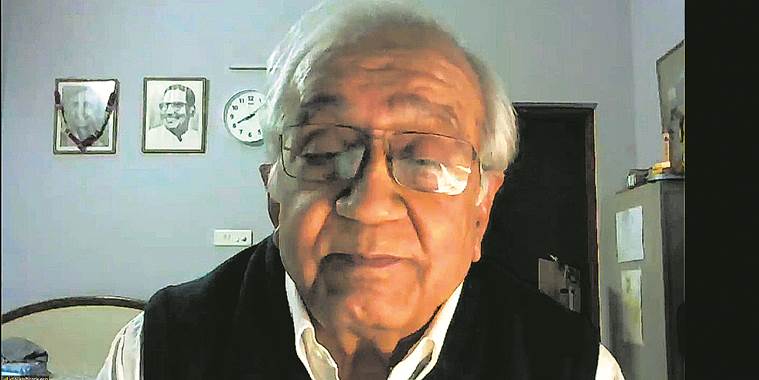 Kirit Parikh
Kirit Parikh
Kirit Parikh
Chairman, Integrated Research and Action for Development
Is the Finance Commission more important than the Planning Commission because it is allocating more funds to the states? Also, how is it that our allocations for education, healthcare, and development have been far from adequate?
NK Singh: Whether there is a permanent institutional mechanism for a dialogue between the Centre and the states is a larger issue. And whether, in the absence of the Planning Commission, the current functions of the Niti Aayog enable this important consultative mechanism between the Centre and the state to be purposefully used, is a much broader issue. About education and health – yes, there can be no doubt that these have been neglected. In fact, the Finance Commission’s recommendations on the health sector are important, particularly given the context of the pandemic. The implementation of the new education policy, which has come after 30 years, and the new health policy of 2017, which is relevant particularly in the pandemic context, these past inadequate public outlays need to be rectified. We need to look at both public and private outlays in important areas of health
and education.
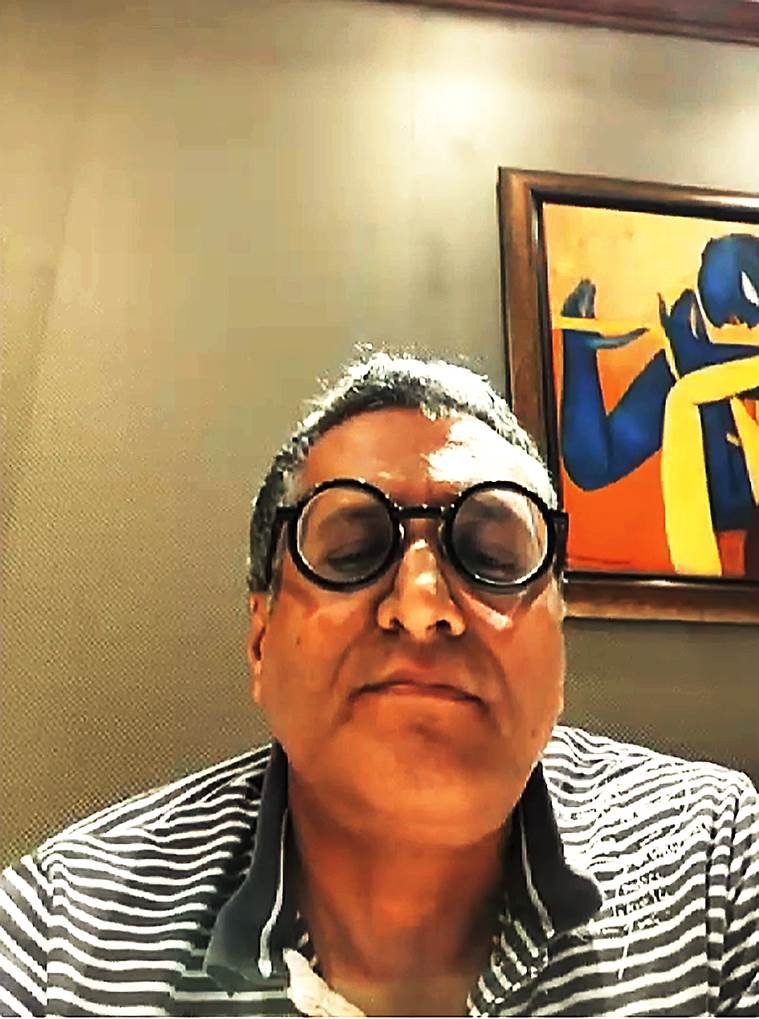 Jeetu Panjabi
Jeetu Panjabi
Jeetu Panjabi
CEO, EM Capital Advisors
For the last five years savings rates are going down when they should go up because there is a new pool of young population contributing to the pool. The implications of this are the draconian policies on tax laws and how a lot of wealthy individuals have become NRIs, no longer adding to the savings pool or creating jobs. Do you see that as a concern and a giant policy misstep for India?
NK Singh: The savings-investment ratio and the incremental capital-output ratio based on total factor productivity and other efficiencies need to significantly go up if India’s growth rate is to climb back to what would be necessary to sustain the national priorities and other objectives. There is no question about that. Now, how draconian our tax laws are is a much wider question. Our tax rates, particularly our corporate tax rates are perhaps internationally competitive. There is no doubt that tax administration needs to be based on greater trust and greater friendliness. That is necessary not only to prevent the outflow of talent, but to get more talent into the country and foreign investments.
Sameer Barde
CEO, The Online Rummy Federation
Since ours is a digital business, we only pay IGST (Integrated Goods and Service Tax), leaving very little interest for the states to support this new business stream. How do you think tax revenues could be shared so that the Centre and state would both be equally motivated to encourage digital businesses?
NK Singh: I think that your suggestions for revenues getting mutually augmented by bringing more activities in the GST is an important question which should be addressed to the Ministry
of Finance.
 Ashok Khemka
Ashok Khemka
Ashok Khemka
Principal Secretary, Government of Haryana
What was the level of the cascading effect of taxes in the pre-GST regime? In the post-GST regime have tax collections improved as a percentage of GDP?
NK Singh: Do I consider GST to be a path-breaking economic reform? Yes. Is this a perfect GST? Surely not. And that is a real issue. The implementation of the GST is an ongoing process. I think three important changes in the GST are necessary. We need to have a greater rate-rationalisation, you need broadbanding into the bulk of it, and move to a regime which is genuinely revenue neutral. We need to get rid of exemptions, improve the quality of invoice matching, quality of technology in terms of ensuring greater compliance.
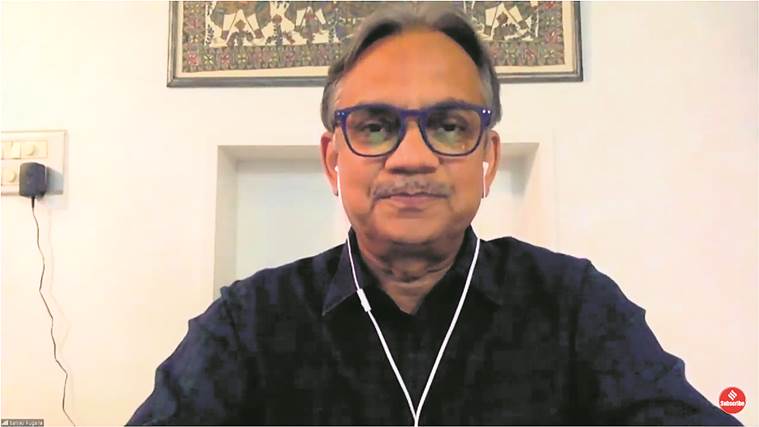 Sanjay Pugalia
Sanjay Pugalia
Sanjay Pugalia
Editorial Director, The Quint
You have just finished your report on the Finance Commission and spoken to all the states. What are they saying about the spirit of federalism?
NK Singh: It won’t come as a surprise if no state government was happy with what the 14th Finance Commission had given — 42 per cent. Each would be happier with a figure like 50 per cent. It’s a balancing act of reconciling divergent objectives. And that’s what we have endeavoured to do. But I can certainly say that all state governments reiterated their confidence in the working of fiscal federalism.
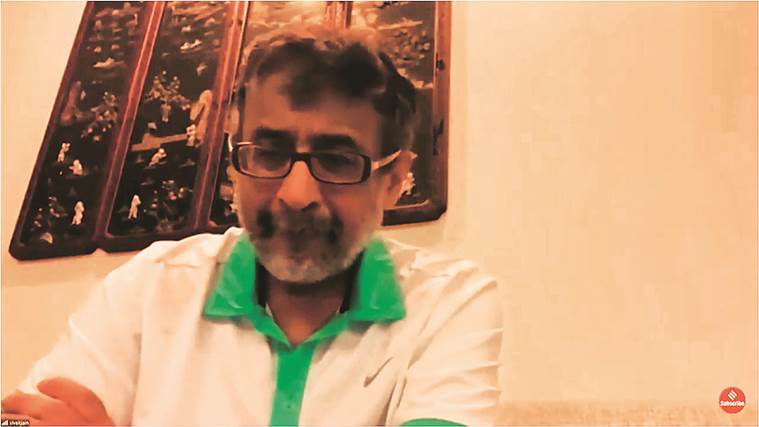 Vivek Jain
Vivek Jain
Vivek Jain
Director, DCW Limited
With India’s GDP growth declining, is the government thinking of any fiscal measures to revive demand and get the struggling corporate sector back on its feet?
NK Singh: The issue of a fiscal stimulus is one which is under continuing review. Monetary and fiscal policies clearly need to act in tandem for a significant revival of the Indian economy. The sharper the contraction this year, the greater would be the rebound next year. The question is what kind of growth rates do I see going forward? If the ongoing reforms are implemented, I see us getting back to the higher growth trajectory in the latter part — the post-pandemic period.
Mudit Jain
Managing Director,
DCW limited
Oxford University teaches a very popular degree course called ‘Philosophy, Politics and Economy’. India has exemplary philosophical thinking. Why hasn’t this excellence translated into good governance and into a developed nation? Why this disconnect between philosophy and reality?
NK Singh: The course you mentioned at Oxford should be something which we should also consider here. It’s a good blend of politics, philosophy and economics. Why hasn’t that kind of learning replicated itself in the governance of the country? Well, there are many complex reasons, some of which are based on legacy. These are the kind of issues which I have endeavoured to address in the book.